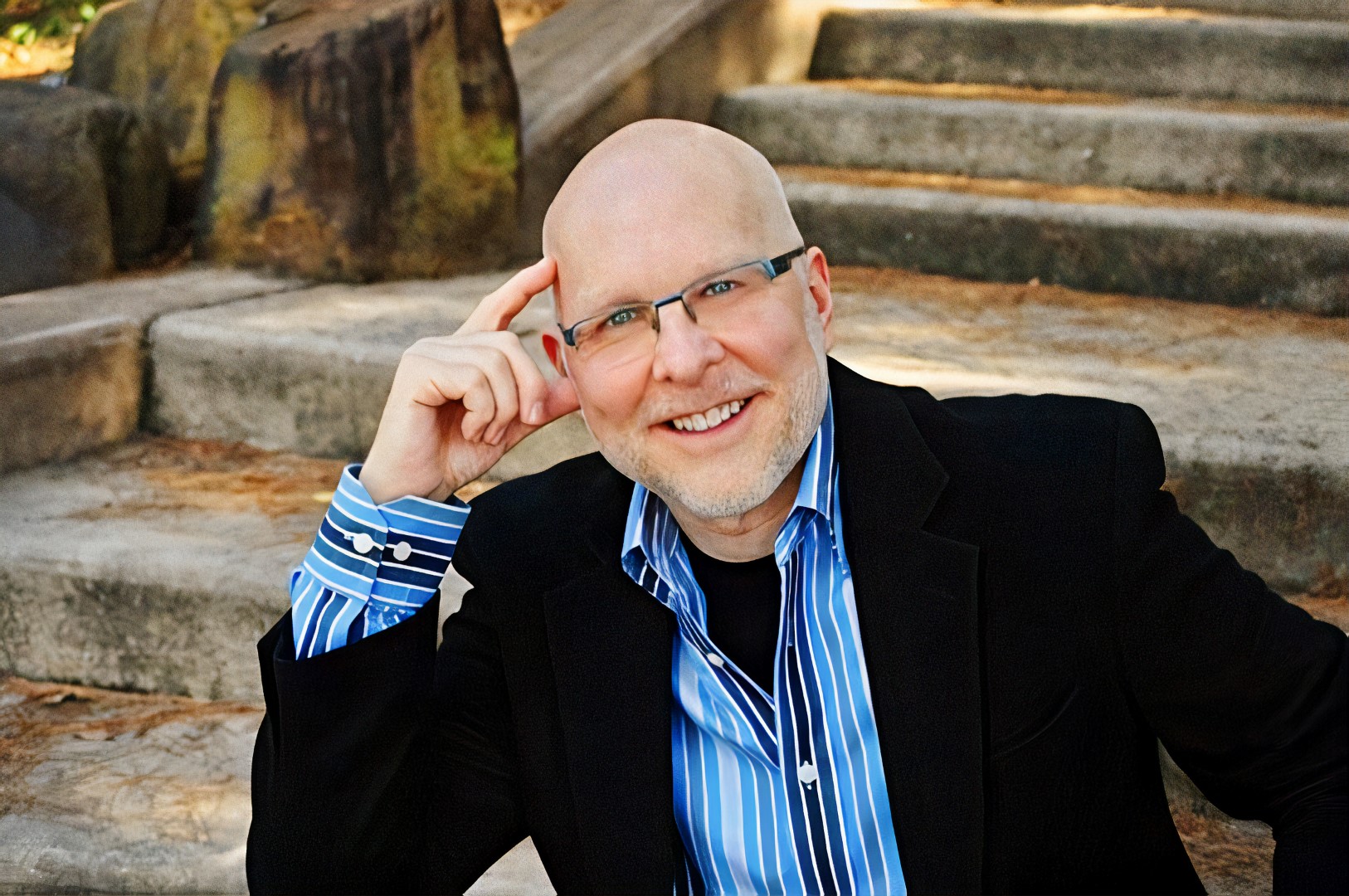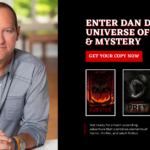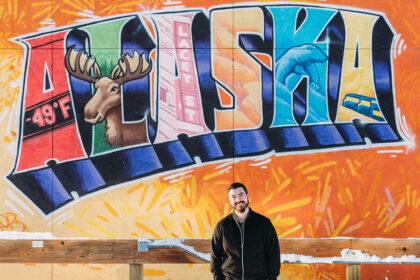
Interviewed by Lucia Matuonto
I had the honor of interviewing Dr. Roger Leslie, an accomplished author and inspirational speaker, who helps people bring their dreams to life. His numerous award-winning books highlight the transformative power of turning inspiration into action. He not only pursues his own dreams but also empowers writers as a coach, editor, and publisher. His latest book, “Light Come Out of the Closet,” reflects his dedication to sharing his wisdom and experiences.
Hello, Dr. Leslie, when did you realize you wanted to become a writer?
Life is always benevolent. Before we ever get inspired to fulfill any dream, life has already set up all the opportunities and support we need to make that dream come true. The week I decided that my destiny was to become an author, my 8th grade English teacher gave my class a unique assignment: we were to do any creative project we wanted related to literature. As soon as I received that assignment, I knew I would write my first story. Two weeks later, I turned in a story of more than 50 pages. I suspect my teacher’s excited reaction at seeing that thick block of paper must have felt like a comedian getting his first laugh. Her response, and the generous comments she gave my work, fueled my enthusiasm for my dream career.
I changed high schools when my family moved across the country. Left with plenty of empty evenings, I used that time to set an ambitious goal: I wrote my first book before I graduated. My gracious senior English teacher, Mrs. Collings not only read the novel, but she sacrificed several of her lunch periods to discuss the work with me. I submitted the book to New York publishers but didn’t start getting any of my books published for many years. That first novel remains unpublished. Intriguingly, an interviewer recently asked me about that book. When I told her the premise, she encouraged me to pull it out and start submitting it again.

Do you have a favorite book or author who has had a significant influence on your writing?
When I was a student and then a literature teacher, certain classics inspired me so much I would reread them regularly for pleasure, or I might pick one up and read a passage to inspire me to strive for excellence in my own writing. I still marvel at the excellence of F. Scott Fitzgerald’s The Great Gatsby and Harper Lee’s To Kill a Mockingbird. But those novels are so universally adored, they don’t seem to offer a very original answer.
Themes of isolation and inner growth fascinate me. For that reason, I love Carson McCullers’s The Heart is a Lonely Hunter and Sherwood Anderson’s Winesburg, Ohio. Beautiful writing also touches me. Passages from The House on Mango Street by Sandra Cisneros, The Joy Luck Club by Amy Tan, and Go Tell It on the Mountain by James Baldwin stay with me and draw me back to those books again and again.
Can you share the inspiration behind your latest book?
My early teen years were so painful that I often avoided thinking about them. In the mid-1970s as I experienced life, my environment—at home and school and society as I knew it—was stable, strict, and so conventional that I interpreted any violation of the norms as a curse. That was the mindset I held growing up gay in the suburbs. I felt flawed. I didn’t belong. I felt hopeless just being me.
Even when I was a boy, spirituality seemed essential to my psychological and emotional well-being. But, as I heard the messages coming to me, being gay negated all the efforts I put forth every day to be an honorable, decent human being. I grew up Catholic and determined in my teens that I could not embrace any spiritual wholeness believing that I was damned. The many positive memories of attending Catholic grade school were always tainted by the belief that who I was naturally made me unpleasing to God.
A few years ago, I decided to reframe how I thought about the period I still identify as the dark night of my soul. I wondered if the religion and society and family of my youth actually helped, rather than hindered me from becoming the man I am today.
So, I set out to write Light Come Out of the Closet with the hopes of discovering if what I’ve always associated with pain from my youth instead provided blessings that gave me the courage to follow my own spiritual path.
What has been the most unexpected or surprising reaction you’ve received from a reader or reviewer regarding your writing?
Personally, one of the most surprising responses to my writing is indifference from people I honored in some of the books I wrote. To me, books have always played so important a role in my self-image and my idea of success that the thought of paying homage to someone by dedicating a book to them or highlighting them in the work felt like I was sharing my very soul with them. To my surprise, some of those recipients didn’t respond to the gesture at all. Some didn’t even read the book.
I don’t begrudge them their perspective. But the first time it happened, I really had to dig deep into my own mind to figure out why what I did with such honorable intentions could be left unacknowledged and seemingly unappreciated.
But then I remember my analogy of life as a prism, and everyone is looking at the same idea from a different facet. It also reminded me that we are all mirrors for each other. It led me to explore how people may have done magnanimous gestures for me that I didn’t response as they expected because my context for the gesture wasn’t the same.
I love life. It always invites me to learn, learn, learn.
Can you share a memorable experience or anecdote from your journey as a writer that has had a lasting impact on you?
One mission in my life is to inspire people to live the life they dream. I believe that our inspiration to achieve any goal is never the beginning of that idea’s journey. Before we ever get the inspiration, Life has already set in our path everyone and everything we need to succeed.
Our journey accelerates through what I have named “fateful detours.” When we know where we’re going, we head in that direction. But sometimes life presents us opportunities that appear to be veering us off track. In reality, they are actually catapulting us toward our goal faster than our intended path could ever take us.
Here’s one of my favorite fateful detours. When I finished my master’s degree in creative writing, I was determined NOT to spend any more evenings or weekends on further education. I intended to teach during the day and commit all my own time to writing and publishing. At that stage of my life, I had one nonfiction book published, but my writing career was nowhere near where I’d been dreaming since I was 13.
One day at work, my principal asked me to become the librarian, as the current one was retiring. Firm in my commitment to write, I told the principal I wasn’t interested in going back to school for the certification required to become the librarian. He said, because I just earned my master’s, I could take the librarian job immediately and get the remaining 27 hours I needed for library certification in the next 18 months. I told him I’d think about it overnight.

I debated, I struggled, and even argued with my maker, but something about this serendipitous offer convinced me to take it. That summer, I enrolled in school—again! Two women ran the library science program at the only local university that offered it. From one I took a children’s literature class where I had to review numerous books. She liked them so much she submitted some to Booklist, the preeminent review journal from the American Library Association. A few months later, I was hired with no interview, no application, no effort on my part at all. Immediately, I started getting about seven reviews, each with my byline, published every two weeks in this stellar national publication.
It gets better. The other professor asked me if I would consider coauthoring a book on library programming that a prestigious publishing house asked her to write. The first day we started working together, we realized, with her background in elementary education and mine in secondary education, we should write a series, not a single book.
Within six months of going back to school, which I was sure I didn’t want to do because it would further delay my writing career, I was being published biweekly in Booklist and I had a 3-book contract that ended up launching my career as a published author.
One more intriguing lesson about being clear on goals. Life not only provides fateful detours, but it also inspires us to pursue what we thought was over forever. After earning my MA, I thought I was done going to school. Years later, with my career going strong, I went back to school and earned my PhD.
What has been the most unexpected or surprising reaction you’ve received from a reader or reviewer regarding your writing?
Personally, one of the most surprising responses to my writing is indifference from people I honored in some of the books I wrote. To me, books have always played so important a role in my self-image and my idea of success that the thought of paying homage to someone by dedicating a book to them or highlighting them in the work felt like I was sharing my very soul with them. To my surprise, some of those recipients didn’t respond to the gesture at all. Some didn’t even read the book.
I don’t begrudge them their perspective. But the first time it happened, I really had to dig deep into my own mind to figure out why what I did with such honorable intentions could be left unacknowledged and seemingly unappreciated.
But then I remember my analogy of life as a prism, and everyone is looking at the same idea from a different facet. It also reminded me that we are all mirrors for each other. It led me to explore how people may have done magnanimous gestures for me that I didn’t response as they expected because my context for the gesture wasn’t the same.
I love life. It always invites me to learn, learn, learn.
Could you share a bit about your book “Light Come Out of the Closet?” What was the inspiration behind it, and what do you hope readers will take away from it?
My heart goes out to those LGBTQ teens who feel isolated and lonely, or whose focus on figuring out their soul or just surviving in environments hostile to them keeps them from utilizing their natural talents. Those hostile environments include school, church, and sometimes their own home. I explored my unique journey out of that environment in my latest book, Light Come Out of the Closet. Now I’ve written No Stranger Christmas to shine a light of hope for those readers in any such environment. I also wrote it in such a way that, I hope, adults who want to better understand how difficult it is to navigate those struggles can. Even more ambitiously, I hope adults who have negative religious preconceptions about gender or sexuality will discover that, as one character says in the novel, “God doesn’t make mistakes. You know that, don’t you?”
What advice would you give to aspiring authors who are just starting on their writing journey?
I offer many insights in my book From Inspiration to Publication: Master Book Writing One Piece at a Time. Here are two essentials for a first draft:
- Don’t get it right, get it written.
When you start a first draft, dive in and follow where it takes you. If you want to start with an outline, then construct a cursory one and follow it flexibly. Often, what you thought you wanted to say is not really what will be most helpful to readers. Trust your intuition. Before I begin each writing session, I meditate to quiet my conscious mind. The great ideas are all in your subconscious, but you have to be brave enough and adventurous enough to let them emerge naturally. Trying to write that first draft perfectly suffocates creativity. As you write, trust your creative process—even if you don’t yet know what that process is or how it will develop.
- Bare your soul.
The most exciting writing—and usually the passages that connect with readers most—occurs when you are completely real and share what you’re afraid to face. When you bare your soul in your first draft, you will discover thoughts and feelings that, on a conscious level, you may not even know were there. That makes the most intense, palpable reading.
I implore writers to have the courage to dig as deep into themselves as they can and write what feels too personal. I also assure them that their first draft is just for them. They don’t have to share it with anyone, not even their editor. After they complete that first draft, they should set aside the manuscript for a few weeks. When they read the passages that made them scared or nervous, they will be able to tell (if they’re honest with themselves) whether or not those passages enhance or detract from their central purpose for writing the book. If they don’t help bring the book more alive for readers, or if the details feel too personal to the writer, they can delete them. No one ever has to know they were in there. But I am confident that most times, those passages end up giving a book its very soul.
Writers can only find that soul if they exercise the courage to face their fears of judgment and express whatever is in their subconscious. Upon reflection, most writers will discover that judgment does not exist in the minds of readers. Once in a workshop, someone shared what felt like a shameful detail. (Even in fiction, the mind of the author is clear to readers.) Another group member leaned over to me and said, “I do that every day. I never knew I was supposed to feel guilty about it.” What may feel like a huge confession to us is the point where readers really connect with authors. Readers want to feel, Wow! I’m not alone. Someone else thinks or feels as I do. Your writing can only create that intimacy with readers when you bare your soul.
For more information about Dr. Leslie please visit:






